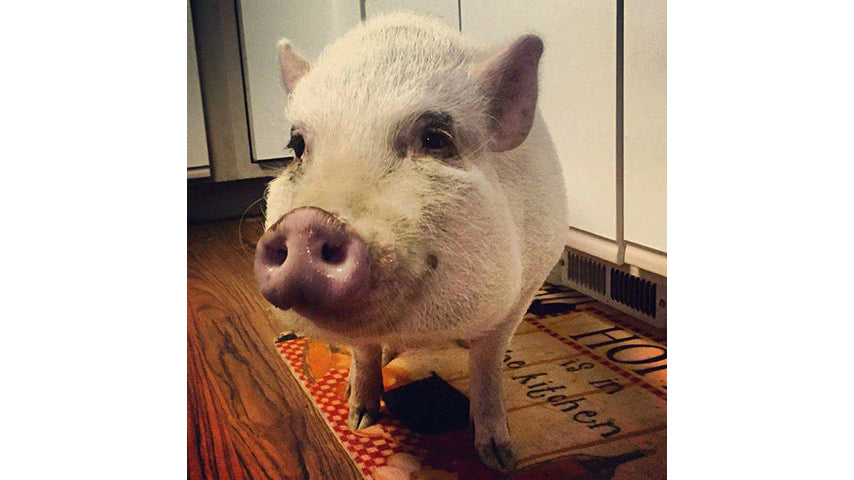Is a mini pig right for you? 5 tips to consider
5 tips to consider if a mini pig is right for you
Mini pigs are making a comeback from the height of pot-bellied pig mania of the 1980s. The internet seems to be full of pictures of mini pigs in costumes, taking naps and living the best pig life. While mini pigs certainly make great pets, therapy animals and companions, they have behaviors and needs different from the average house pet. Before bringing home a mini pig, here are five tips to consider.
1. The tiny piglet won’t stay tiny.
Mini pigs reach maturity at 5 years old – that’s a long period of growing! On average, mini pigs mature at 70 to 150 pounds and certain breeds can easily tip the scales at 200 pounds. Terms like “teacup,” “micro” or “nano” mini pigs can be misleading and all pigs require proper nutrition to develop correctly and maintain good health. Before bringing home a tiny piglet, check out the American Mini Pig Association (AMPA) height classifications or visit a mini pig rescue to learn more about healthy body conditions and realistic sizes of mini pigs.
2. Check local zone regulations.
Mini pigs are still considered livestock and many city governments have yet to update zoning requirements to allow pigs within city limits. Check with your local government for animal ordinances, including vaccination requirements and pet limits. Need help changing your city’s zoning regulations to allow mini pigs? Check out the resources available through the American Mini Pig Association.
3. Forget nails, be ready to trim hooves.

Mini pigs have needs different from other house pets. Aside from specific nutrition requirements, mini pigs require certain vaccinations, worming protocols, hoof trimming, dental care and tusk trimming to maintain good health. It’s also important to train your pig to tolerate such important mini pig care practices.
Before bringing home a mini pig, find a veterinarian with experience caring for mini pigs and check local vaccination and worming recommendations. A veterinarian can teach you how to properly trim mini pig hooves and tusks or take care of it for you.
4. Pigs will be pigs.
Wallowing, rooting and exploring are instinctual to pigs. Extreme intelligence and high food motivation make mini pigs easy to train but destructive without attention and stimulation. Mini Pig rooting can destroy yards and landscaping and mini pigs can quickly learn to open cabinets, trash cans and even the refrigerator. Be sure to use safety latches or baby-proof your home before bringing home a mini pig.
Mini pigs are hypoallergenic with little-to-no body odor. They enjoy having clean sleeping areas but can be messy with food and water.
Mini pigs can make a wonderful addition to your family but be aware of natural pig behaviors and positive training techniques for a pig-friendly home.
5. Be ready for a pig-ful of love.
Cuddly, sensitive and emotionally aware, research has shown that pigs are capable of complex emotions, including excitement, anxiety, frustration, mourning, urgency and fear. Mini pigs are social animals and enjoy being with their family. It’s not uncommon for mini pigs to experience separation anxiety or depression if left alone for long periods of time or rehomed. Mini pigs have a lifespan of 20 years. If you’re considering a mini pig, be prepared for a lot of pig love and family-pig bonding!
Interested in learning more about mini pigs? Check out Mazuri mini pig diets and the Mini Pigs of Mazuri® Facebook group!
